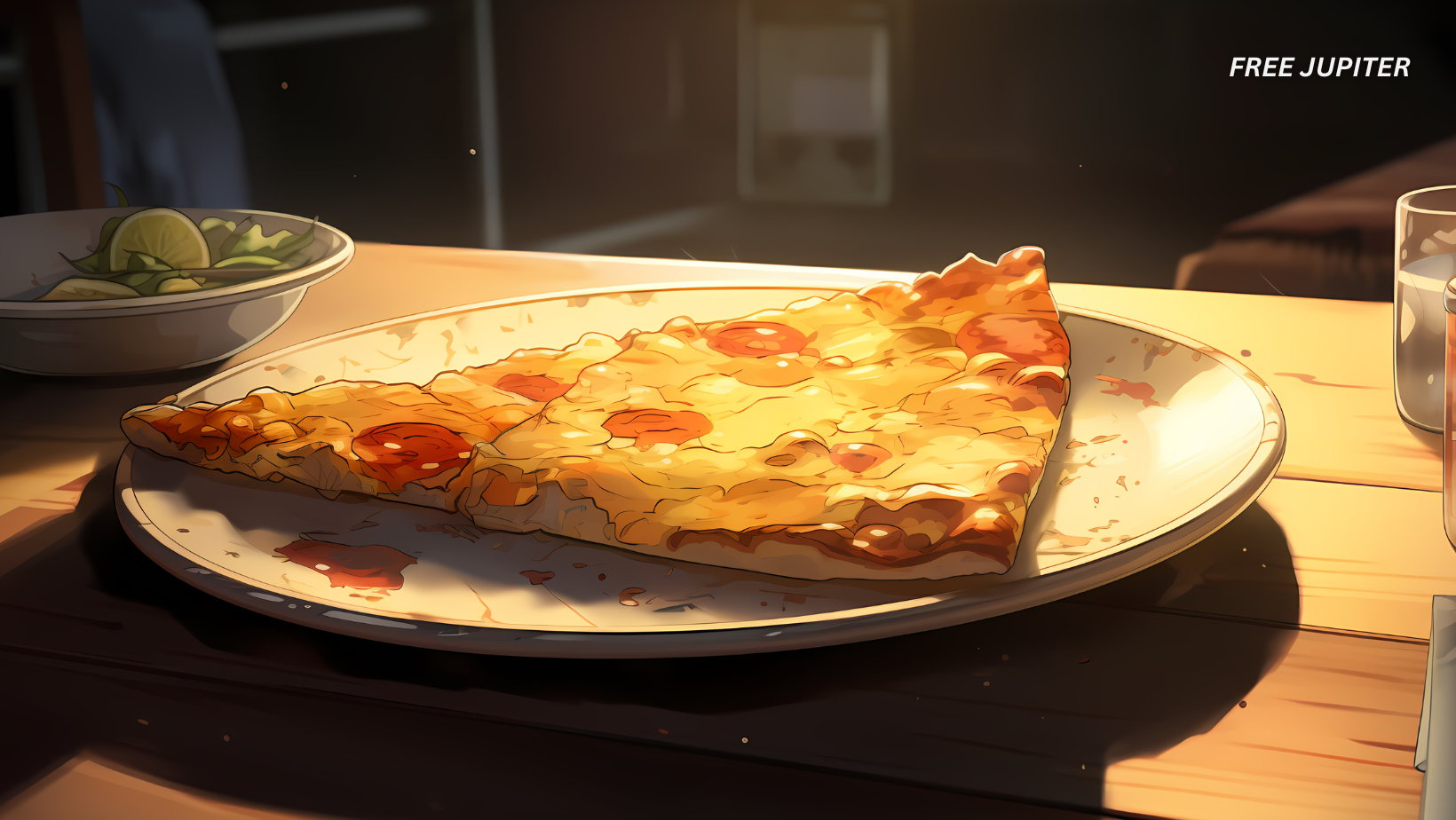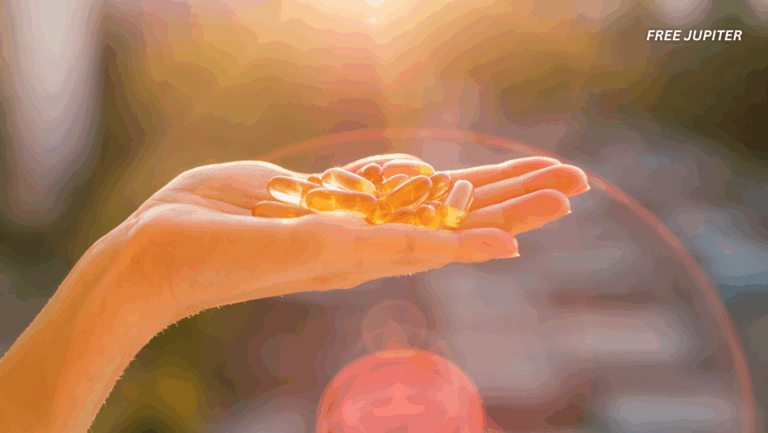Friendly Note: FreeJupiter.com shares general info for curious minds 🌟 Please fact-check all claims—and always check health matters with a professional 💙
It might sound like the plot of a bizarre bedtime story, but science is starting to uncover a strange connection between what’s on your dinner plate and what plays out in your dreams. Specifically, if you’re snacking on cheese or other dairy products before bed, you might be setting yourself up for some seriously weird or unsettling dreams.
That’s the suggestion from a new study published in Frontiers in Psychology, where researchers looked into how our late-night munchies—especially those involving dairy—could be influencing our dream lives. And here’s the twist: people who reported strong reactions to lactose (think bloating, gas, and stomach cramps) were also the ones more likely to report intense or disturbing dreams. So, while cheese might comfort your taste buds, it could be stirring up chaos in your subconscious.
A Slice of Research: Food and Dreaming
The idea that food could shape our dreams isn’t entirely new. Back in 2015, researchers began poking around the concept of food-dependent dreaming. It’s a fancy term for a pretty simple question: Can what we eat affect what we dream about?
Dr. Tore Nielsen, a psychiatry professor at the University of Montreal, has been a key figure in both the 2015 study and this new one. According to Nielsen, cheese has consistently shown up as a “usual suspect” when people talk about their dream disturbances. “People kept blaming cheese for their bizarre or scary dreams,” he explained. “Now, we think we’re beginning to understand why.”
What the Study Found
For the study, researchers surveyed over 1,000 people—mostly psychology students—about their diet and sleep habits. What stood out was this: the more severe someone’s lactose intolerance symptoms were, the more likely they were to report vivid, unsettling nightmares. These weren’t just occasional spooky dream fragments, either. Many described recurring and emotionally disturbing dreams that stuck with them during the day.
When asked which foods they suspected were triggering these dream episodes, dairy and sugary snacks were mentioned the most.
To be fair, since the sample mostly included college students enrolled in an introductory psychology course, the results can’t be generalized to everyone. But it’s an intriguing peek into the ways our stomachs might be sneakily scripting our dream sequences.
Read more: Scientists Discover An “Off Switch” For Cholesterol—And It Could Save Millions Of Lives
Why Cheese Might Turn Your Dreams Into Horror Films
There are a few ideas floating around as to why dairy, especially in lactose-sensitive individuals, might play a role in nightmare production.
One possibility is the discomfort caused by digestive issues—like cramps, gas, or bloating—interrupts deep, restful sleep. According to Nielsen, these physical sensations can bleed into your dreams, turning them darker or more stressful.
Marie-Pierre St-Onge, director of Columbia University’s Center of Excellence for Sleep & Circadian Research, adds that anything disrupting your digestion can ripple into your sleep quality. Poor sleep often comes hand in hand with more intense or fragmented dreams.
Dr. Patrick McNamara, from Boston University’s medical school, offers another theory. He suggests that digestive discomfort could cause “micro-arousals”—brief moments when your brain wakes up just enough to disturb your sleep cycle, even if you don’t fully wake up. These interruptions can mess with REM sleep, which is when the most vivid dreaming occurs. As a result, the dreams you do have may feel more intense—or more nightmare-ish.
Not So Fast—Dreams Are Complicated
Of course, researchers are quick to point out that nightmares aren’t caused by dairy alone. Stress, emotional turmoil, certain medications, or even watching a horror movie before bed can all mess with your dreamscape. So, while lactose might be a factor, it’s probably just one piece of a much bigger puzzle.
Dr. Nielsen and his team admit that more research is needed—especially with a more diverse group of participants—to really confirm the link. As co-author Russell Powell, a professor emeritus at MacEwan University, puts it, this study is just the tip of the iceberg.
Should You Break Up With Cheese Before Bed?
Not necessarily.
If you’ve ever noticed your dreams take a strange or darker turn after indulging in pizza or ice cream late at night, it might be worth tweaking your evening snacks. You don’t need a prescription to try cutting back on dairy and seeing if your sleep (and dreams) improve.
As Nielsen suggests, small changes in what we eat before bed might help some people sidestep nightmare-fueled nights—without needing to overhaul their entire lifestyle.
Read more: How Eating Zucchini Every Single Day Affects Your Body, According to Science
RELATED STORIES: How Other Foods Might Be Influencing Your Dreams
If this whole cheese-and-nightmares connection has you eyeing your fridge suspiciously, here are a few other surprising ways your snacks might be shaping your sleep and dreams:
🍌 Bananas Before Bed: Nature’s Sleepytime Snack
Bananas often get credit as a pre-bedtime superfood, and for good reason. They’re rich in magnesium and potassium—two minerals known for their muscle-relaxing and stress-reducing properties. Magnesium, in particular, helps calm the nervous system and promotes deeper, more restful sleep.
But what about dreams? Some people report that eating a banana before bed not only helps them fall asleep faster but also leads to more vivid or even whimsical dreams. While the science on bananas and dream content isn’t definitive, the improved sleep quality they provide may naturally result in better access to REM sleep—the stage where the most intense and imaginative dreaming occurs.
In short, bananas might not transport you to dreamland directly, but they could be paving a smoother road there.
🌶 Spicy Foods and Strange Dreams: Too Hot to Sleep?
If you’ve ever regretted eating spicy curry or hot wings before bed, you’re not alone. Spicy foods—especially those containing capsaicin, the compound that gives chili peppers their heat—can raise your body temperature. This spike in internal heat may interfere with your body’s ability to cool down for sleep, which is a crucial part of falling into and staying in a deep sleep cycle.
Higher body temperatures at night have been linked to more frequent awakenings, lighter sleep, and—surprise—bizarre and vivid dreams. Some sleepers even report having more intense or emotionally-charged dreams after a spicy meal.
So, while hot peppers might fire up your taste buds, they could also be firing up some wild mental imagery while you sleep.
🍬 Sugar and Sleep: A Recipe for Restless Nights
Late-night sweet tooth? That chocolate chip cookie or bowl of cereal might satisfy your cravings, but it could come with a cost.
Foods high in refined sugar can cause a rollercoaster of blood sugar spikes and crashes, which don’t just affect your energy levels during the day—they can also impact your sleep quality. High sugar intake has been associated with more restless sleep and frequent nighttime awakenings. And since disrupted sleep can lead to fragmented REM cycles, your dreams may feel disorganized, chaotic, or even nightmarish.
Some studies have also linked high sugar consumption to increased brain activity during sleep, which could translate into more vivid and emotionally-charged dreams.
In short? Sweet dreams might not come from sweets.
🍫 Chocolate Dreams: Bittersweet Sleep Fuel
Chocolate lovers, brace yourselves. That square of dark chocolate you treat yourself to before bed might be doing more than you think.
While dark chocolate is full of antioxidants and can offer some health perks, it also contains caffeine and theobromine—two natural stimulants. These compounds can delay your ability to fall asleep and reduce the time you spend in REM sleep. And as we’ve learned, REM is prime dream territory.
By shortening or altering your REM sleep, chocolate might make your dreams more intense or emotionally jarring. Some people even report feeling more anxious or restless at night after a cocoa-rich snack, which could bleed into their dream narratives.
So if your dreams turn slightly surreal or spooky after a chocolatey dessert, it might not be just your imagination.
🥛 Warm Milk: A Classic That Might Actually Work
On the flip side of the dairy debate, some people swear by a warm glass of milk before bed. It’s been a bedtime tradition for generations. While the science is mixed, milk does contain small amounts of tryptophan—an amino acid that helps produce serotonin and melatonin, both of which regulate sleep and mood.
The placebo effect may also be at play here. Because warm milk is so strongly associated with comfort and sleep in many cultures, simply drinking it might help cue your brain that it’s time to wind down. And that state of relaxation might just carry over into a more peaceful dream experience.
Unless, of course, you’re lactose intolerant—in which case, this soothing ritual could backfire.
Read more: Cats Might Be the Closest Thing to a ‘Perfect’ Creature, According to Science
🌙 Final Thoughts: Your Dreams Might Be on Your Plate
The connection between food and dreaming is still a developing field in sleep science, but the evidence is growing. While it’s unlikely that any single food can fully dictate the plots of your dreams, certain ingredients can nudge your body and brain in ways that shape your sleep quality—and with it, the dreams you experience.
Whether it’s bananas helping you slip into deeper sleep, spicy foods making your dreams more vivid, or sugar throwing your brain into chaos, your evening menu might be crafting your nighttime mental theater more than you realize.
So the next time you tuck into a midnight snack, ask yourself: Is this just food—or dream fuel?
Friendly Note: We love sharing ideas and stories here on FreeJupiter.com, but we’re not doctors, just a family running this site as a passion project. 💫 The info you find here is for general interest only. Always double-check the facts, and when it comes to your health, chat with a qualified professional before making any decisions. 💙










